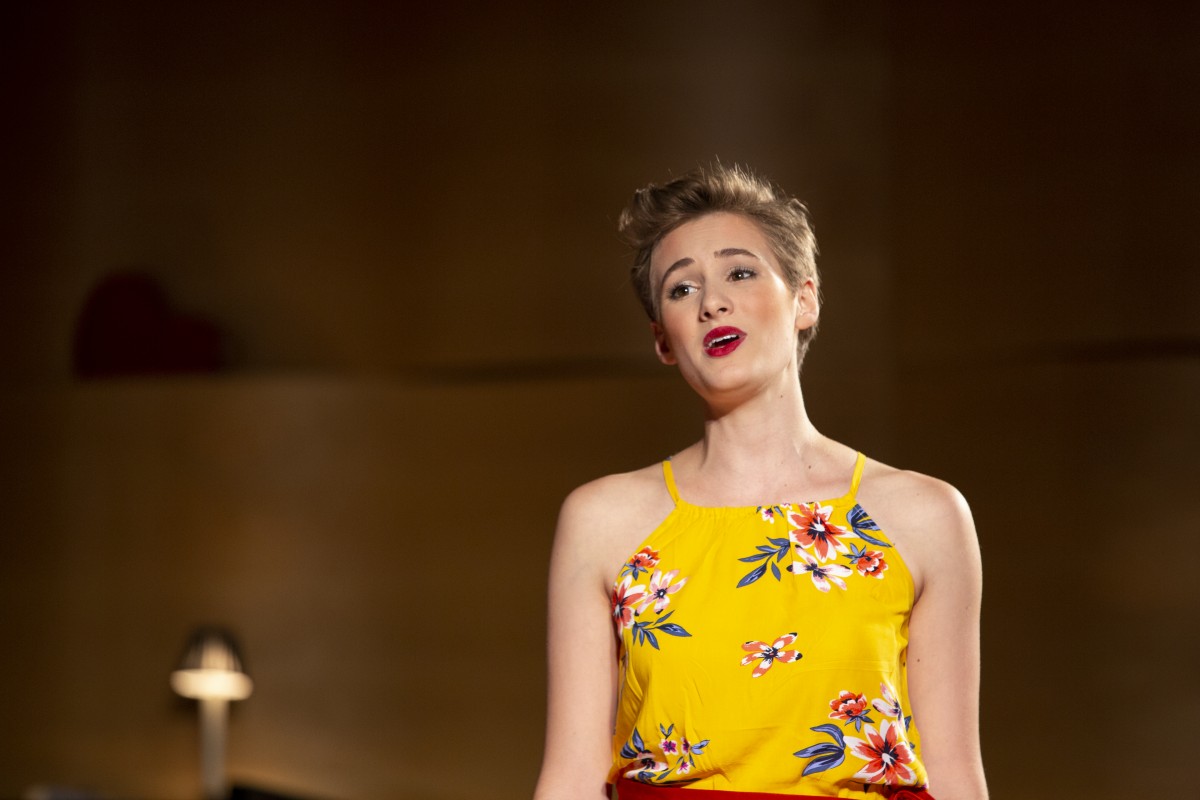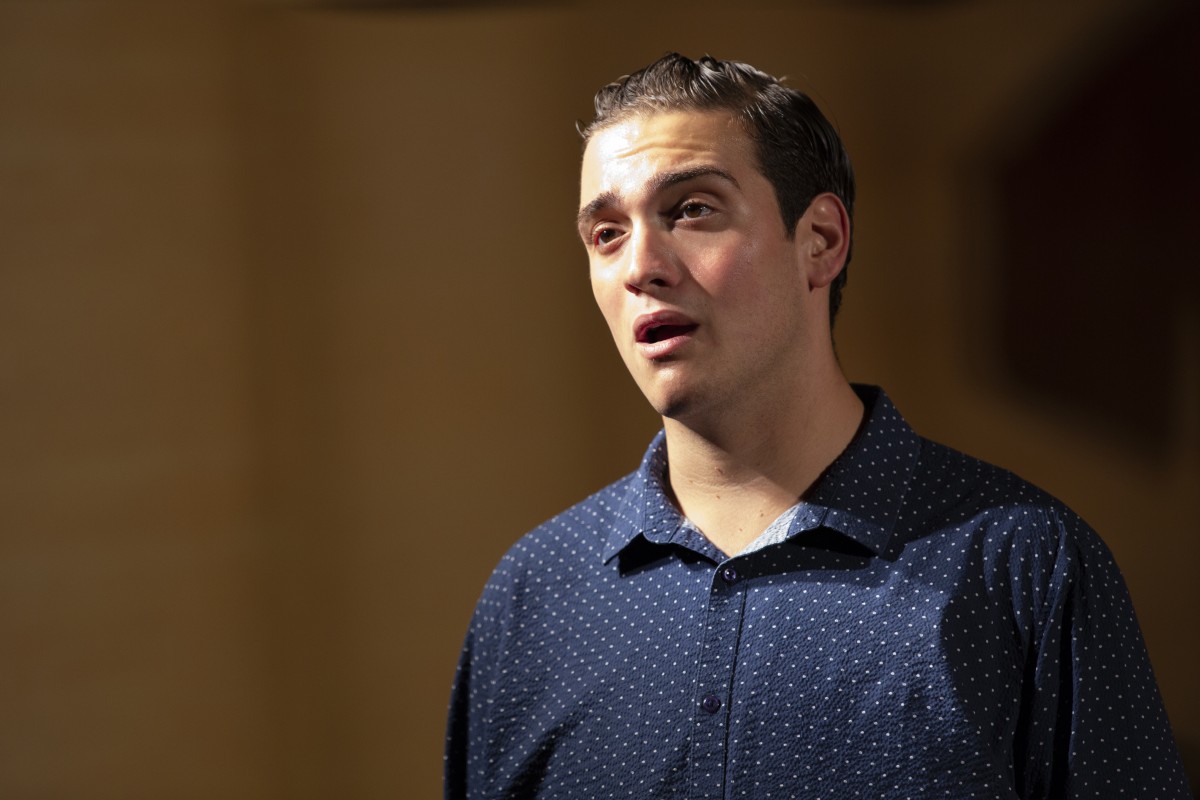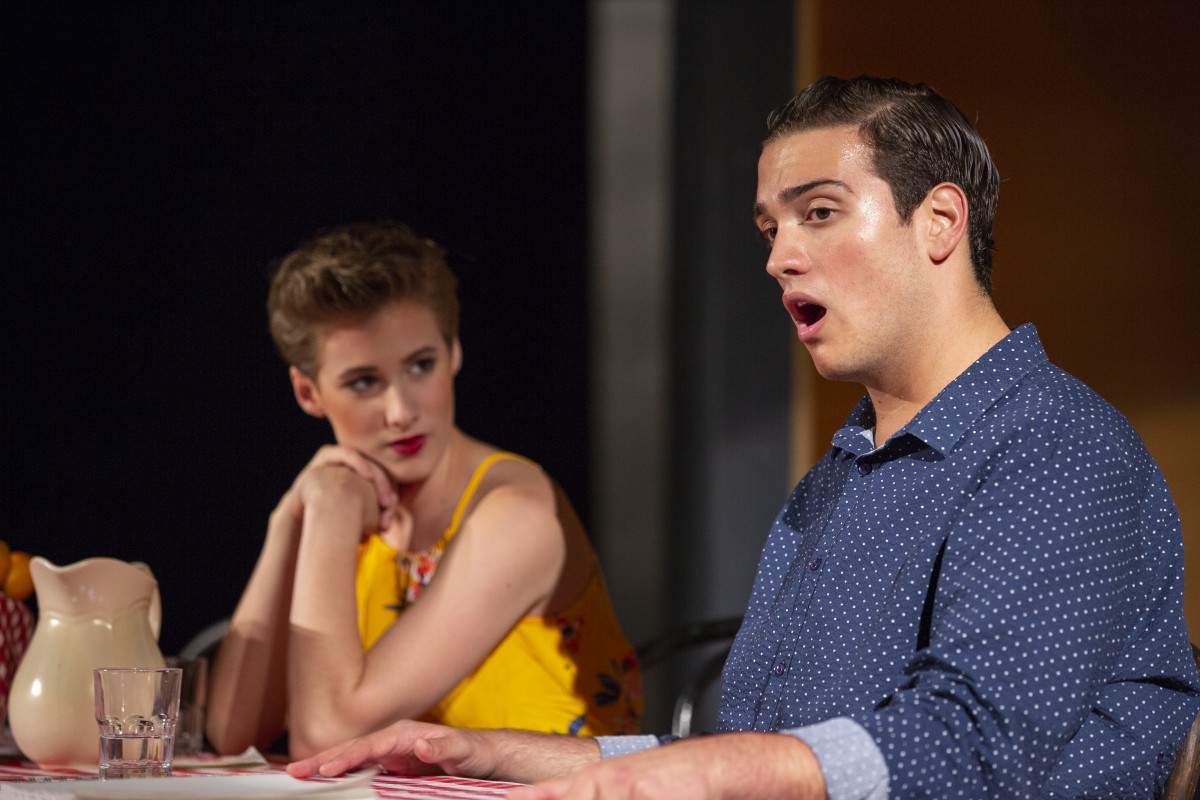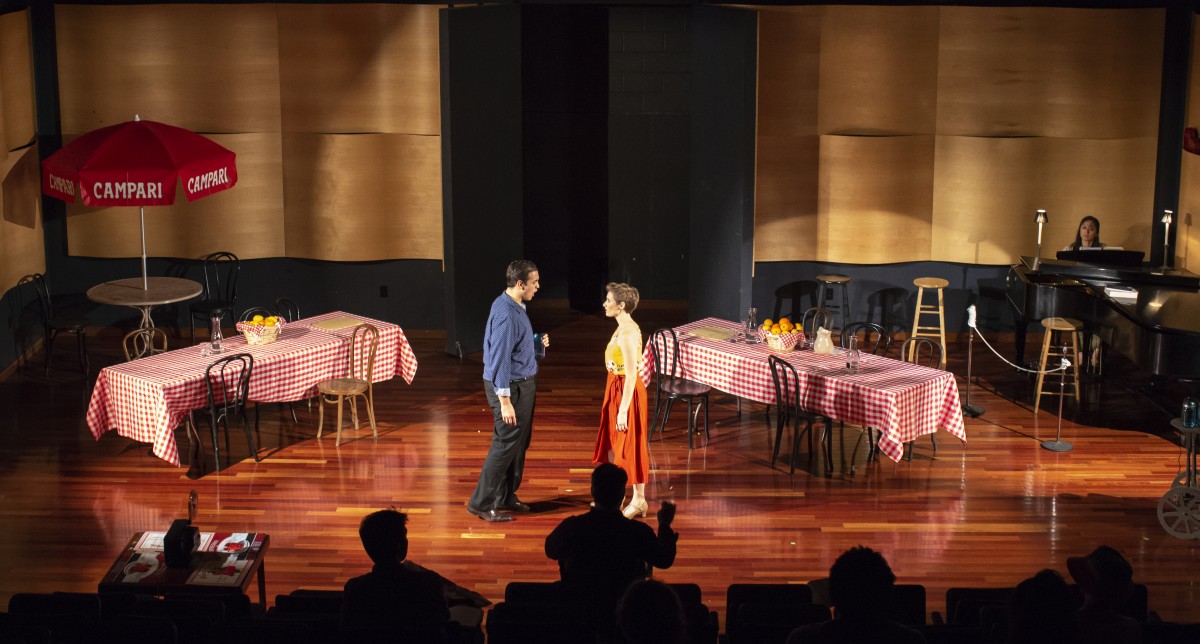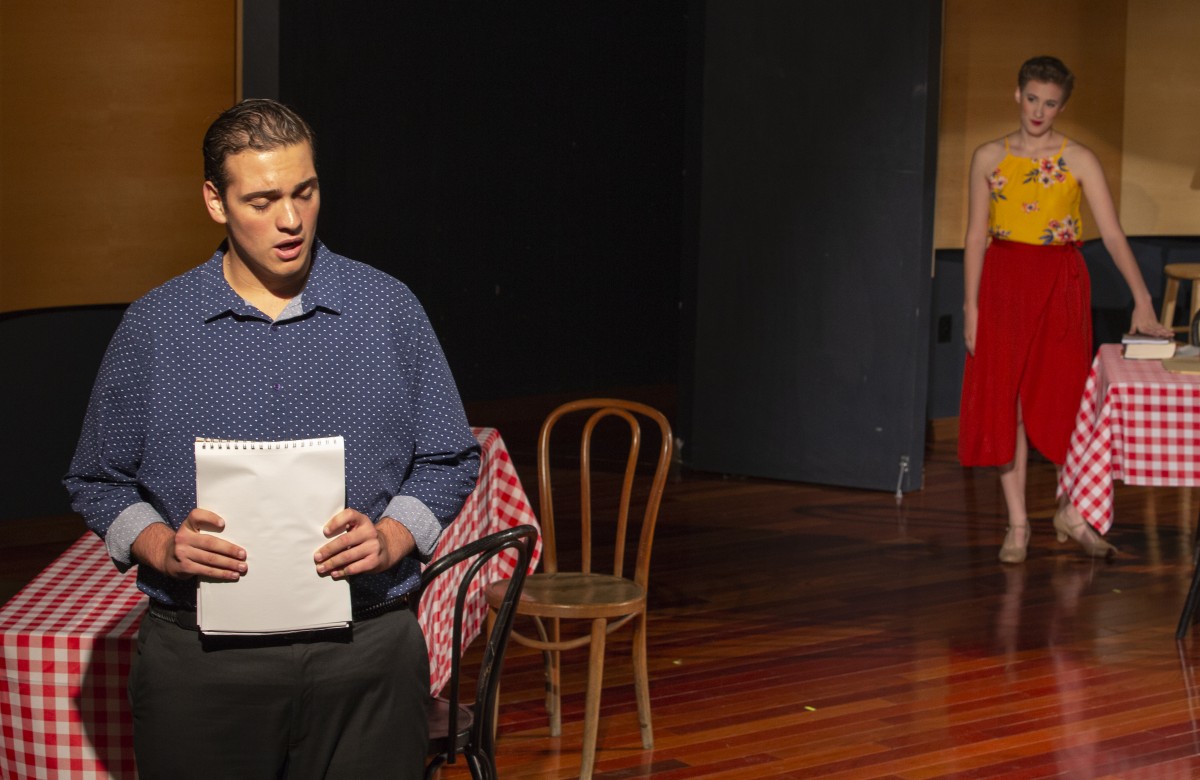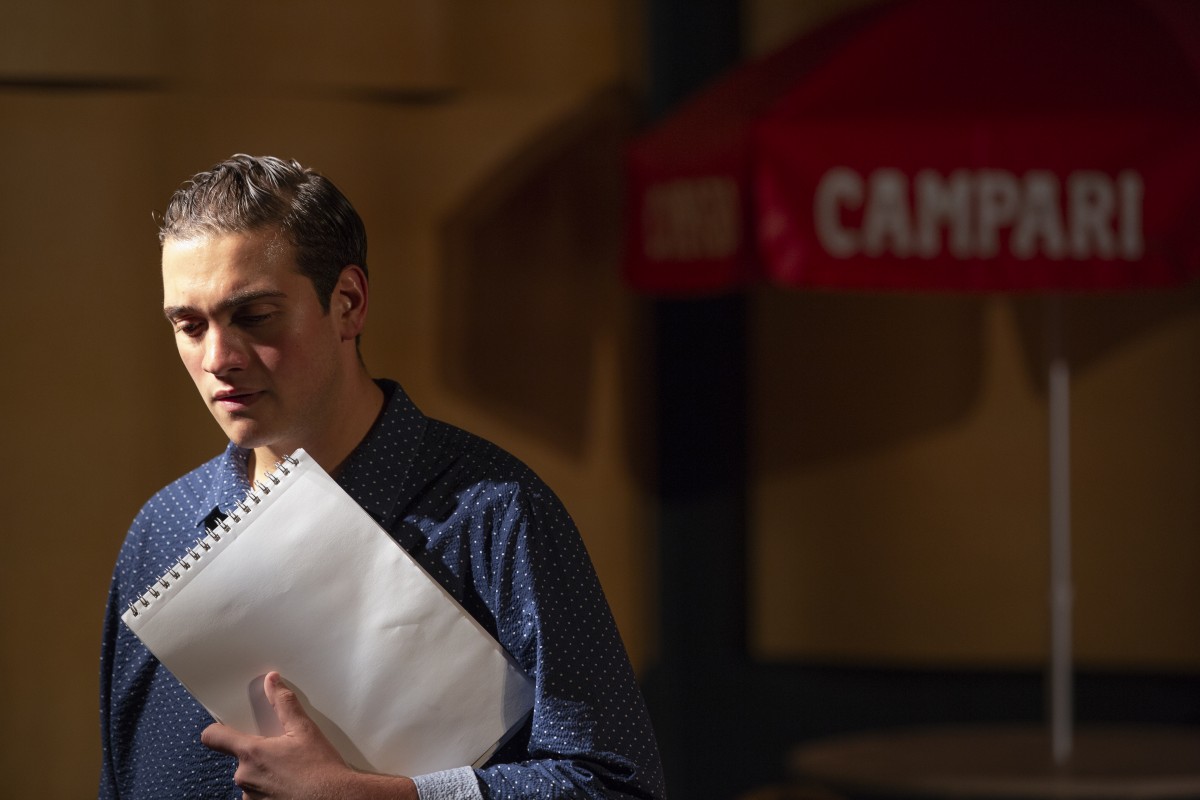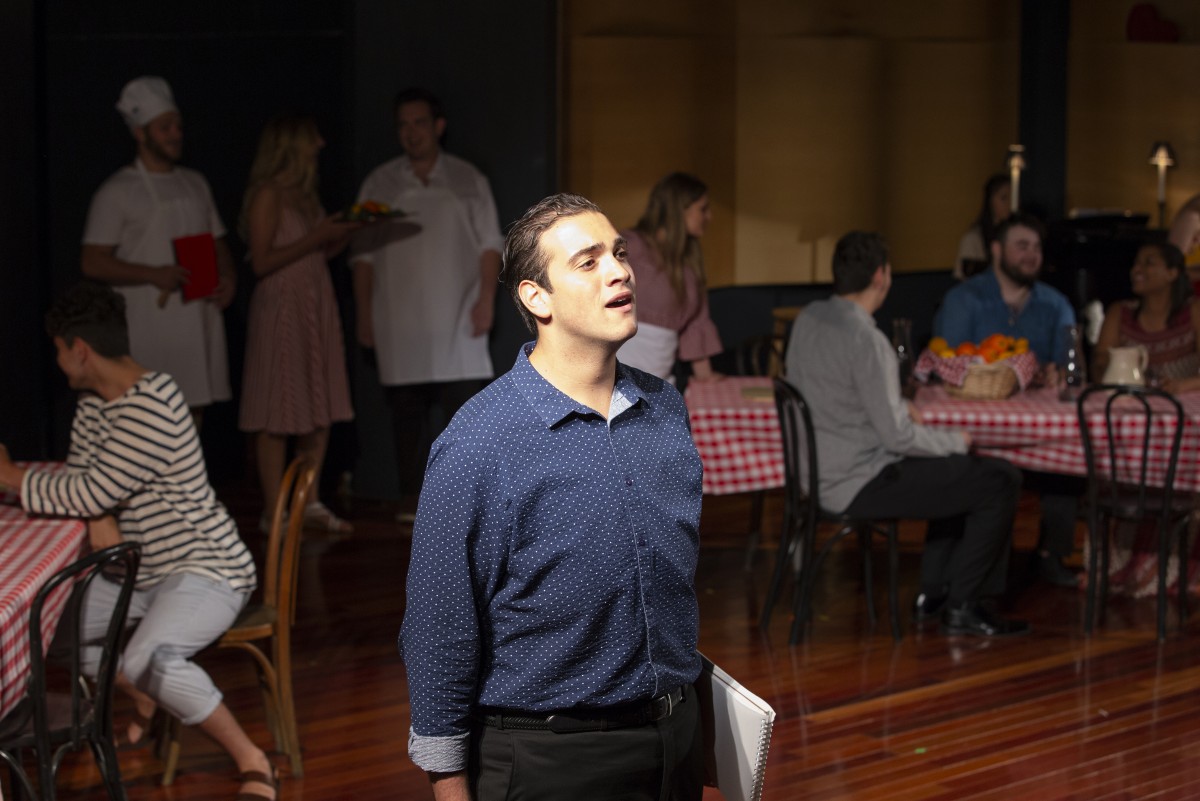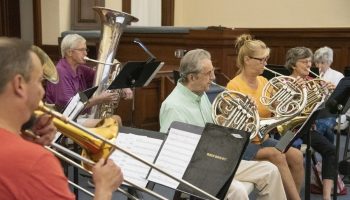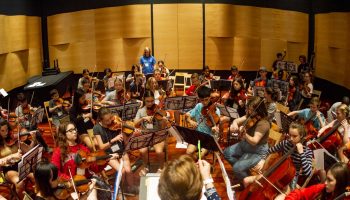Voice student Philippe L’Esperance thinks everyone will be able to relate to his character in the School of Music’s production of L’elisir d’amore.
“Who doesn’t want to be loved? … Everyone wants to be wanted, you know. (It’s) a basic human instinct, emotion, feeling,” said L’Esperance, who will be singing the role of Nemorino in today’s performance. “Everyone wants to be wanted and loved.”
All Nemorino wants is to be loved by Adina. And so to achieve this goal, he uses all of his savings to buy a fake love potion, claimed to be a cure-all, from Dr. Dulcamara, the itinerant medicine man, claimed to be cure-all.
The potion fools Nemorino and the entire town, but Adina sees right through it.
Adina is an educated and rich popular girl who starts the opera reading Tristan and Isolde, thinking love doesn’t exist in real life and is only a fairytale. Adina thinks that life is very methodical, and she knows how to use her power to get what she wants, and to be popular.
Adina doesn’t believe love exists because she can’t calculate it, according to Jessica Niles, who will play Adina in today’s performance.
But Adina finally realizes that the true component in “the potion of love” is sharing oneself with authenticity.
“Real love comes from within yourself and (from) you really sharing yourself with someone else,” Niles said.
Voice students in the School of Music will be performing Gaetano Donizetti’s famous Italian comedic opera, L’elisir d’amore (The Elixir of Love), directed by John Giampietro, at 7:30 p.m. Tuesday, July 17, in Fletcher Music Hall. There will be three additional performances at 7:30 p.m. on Wednesday, July 18, Thursday, July 19, and Friday, July 20, in Fletcher.
In Giampietro’s production, some elements of the opera — which was written in 1832 — are updated to make them relevant. For example, in the character of the
Belcore, Giampietro tried to find a contemporary equivalent of a soldier, “that pompous, arrogant, self-absorbed person,” and came up with a Hollywood action star who plays soldiers in movies.
Additionally, the elixir of love will be “Kombucha mixed with some beer,” instead of wine. Giampietro said the reason why this production is doing something different is because “we are still susceptible to all sorts of claims by any company that’s like, ‘eat this or drink this,’ and it will have so many helpful benefits for you. It will cure stuff; it will reverse aging. We buy all that stuff.”
According to Giampietro, Dr. Dulcamara is a con man who goes around and sells people ointments and potions he claims will heal all sorts ofailments and conditions.
“So (this) is sort of a contemporary reflection of that,” Giampietro said, “because Kombucha … doesn’t really do anything.”
Nevertheless, according to both Giampietro and Niles, this contemporization is interpreting, rather than changing, librettist Felice Romani’s text or intention.
“A director is responsible for telling the story of the piece, but stories can be told in many different ways,” Giampietro said.
In Giampietro’s version of L’elisir d’amore, Belcore will walk in with the entire town going, “Oh my gosh, a movie star,” Niles said.
“So that’s a very public life, to be a movie star and have a relationship with the public. I mean, you look at the Kardashians now or famous movies stars now, and it’s like the life that they put on Instagram, and it’s the only life we know of them,” Niles said. “That’s what we associate to be real about them.”
When Adina and Belcore meet, they immediately start flirting, decide they are going to get married and begin planning the wedding.
“But this is all in the public eye,” Niles said. “They have no personal relationship to each other at all. And it doesn’t mean that they don’t care about each other. … But having this public arena makes it a little impersonal and more for show than actually a relationship between the two characters.”
According to Niles, in many productions, Adina is often played as “someone who sleeps around with people and doesn’t care.” But for Niles, Adina is a complicated character with depth, instead of a stereotype of a popular girl who sleeps around.
And in Giampietro’s production, Niles said she is given the opportunities to dig in and explore more about Adina’s depth. She said the audience’s perception of Belcore and Adina can easily fall into stereotypes.
“But then, Adina has this relationship with Nemorino that’s totally different, which is visible in both the words she uses with him, and in the melodic and harmonic line she sings to him in,” Niles said. “So it’s evident not in the music with the composer, but in the libretto that is very different (in) her relationship with Nemorino, which is in private, than with Belcore.”
Because, as Niles said, “love is actually coming from you sharing yourself with someone in the private life.”
L’Esperance, who will be singing the famous Aria “Una furtiva lagrima” (A Furtive Tear), said that he has been working on how to produce this beautiful sound, which is “hard to do but needs to sound easy.”
According to Giampietro, the Bel canto style, which means “beautiful singing,” is a demanding one.
“The challenge for the young singers always is crafting your vocal performances without losing any of the human connections with what you are doing on stage, making sure everything — acting, staging presence, making sure technique is on point and also capturing style — is woven together,” Giampietro said. “And that is always the biggest challenge for young singers.”
But he has confidence in the voice students’ abilities and thinks the audience is “going to marvel” at the young singers.
“It’s a delightful piece, filled with joy and warmth,” Giampietro said. “I think the youthfulness of the cast reflects that as well.”
Giampietro said he would also like the opera to stir some memories and experiences in audience members.
“This type of comedy or the piece itself is not going to change the world, but it may make you as an audience member re-experience what it’s like to be in love, what it’s like to fall in love,” Giampietro said, “what it’s like to have a dream finally come true and the moment you discover yourself as a person.”




